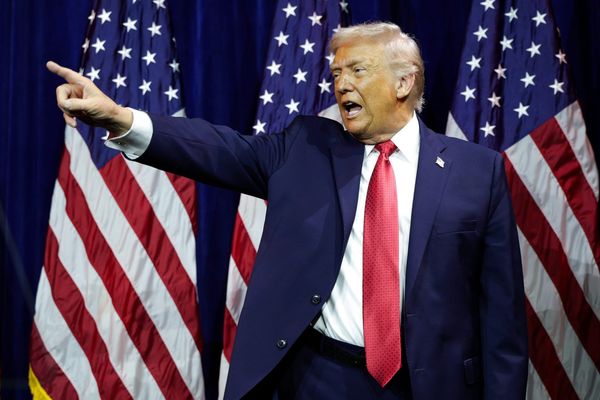
This week, the US Senate overwhelmingly passed major online safety reforms to protect children on social media. But with ongoing pushback from the tech industry and freedom of speech organizations, the legislation faces an uncertain future in the House. The ambiguous fate of the legislation underscores the ongoing struggle to regulate the online world, despite overwhelming support to do so, after years of deregulation.
The Kids Online Safety Act, or Kosa, would create a “duty of care” for companies operating a platform – meaning companies would be obligated to take reasonable steps to prevent harm for minor users. Social media platforms would also have to provide minors with options to protect their information, disable addictive product features and opt out of personalized algorithmic recommendations.
Its passage by the Senate in a 91-3 vote comes after relentless pressure from parents’ groups and children’s advocacy organizations, who have argued over the years that social media is harming children – at times with deadly consequences.
“Today’s Senate vote marks a historic and emotional milestone for myself and for all parents who have fought tirelessly to protect our children from the dangerous environments created by Big Tech,” said Maurine Molak, who founded advocacy group David’s Legacy Foundation in honor of her son, who passed away at age 16 in 2016 after months of cyberbullying. “Now, we call on the House to act quickly as well to protect our future generations from preventable tragedies.”
Proponents of the act say it is a necessary first step in regulating tech companies, requiring them to protect children from dangerous online content, and take responsibility for the harm their platforms can cause.
But opponents fear that while noble in its intentions, Kosa would violate the first amendment that protects free speech, and could harm vulnerable kids who wouldn’t be able to access information on LGBTQ+ issues or reproductive rights.
That’s because, critics argue, vague language in the bill could lead social media platforms to over-moderate in order to avoid legal liability for potentially problematic content. In doing so, young users speaking out about mental health challenges or addiction may be censored as if they are promoting such behaviors. A previous version of the bill also charged state attorneys general with enforcement, leading critics to believe conservative attorneys general could weaponize the legislation to censor content they don’t approve of.
“It’s a terrible idea to let politicians and bureaucrats decide what people should read and view online,” freedom of speech group the Electronic Frontier Foundation said of the Senate’s passage of Kosa.
Tech firms similarly argue that Kosa’s stipulations could create a “chilling effect” for users, “incentivizing companies to filter content on topics that disproportionately impact marginalized communities”.
Advocates of Kosa reject these critiques, noting the bill has been revised to address many of those concerns – including shifting enforcement from attorneys general to the federal trade commission and focusing the “duty of care” provisions on product design features of the site or app rather than content specifically. A number of major LGBTQ+ groups dropped their opposition to the legislation following these changes, including the Human Rights Campaign, GLAAD and the Trevor Project.
What’s next?
After passing the Senate this week, the bill has now moved onto the House, which is on a six-week summer recess until September.
Proponents are now directing their efforts towards House legislators to turn the bill into law. Joe Biden has indicated he would sign it if it passes. In a statement Tuesday encouraging the House to pass the legislation, the US president said: “We need action by Congress to protect our kids online and hold big tech accountable for the national experiment they are running on our children for profit.”
James P Steyer, founder and CEO of children’s safety group Common Sense Media, concurred: “Congress cannot kick the can down the road any longer. The House must follow suit and Congress will then and once and for all be able to proudly say that it has finally taken meaningful action to protect America’s children, teens, and families.”
House speaker Mike Johnson of Louisiana has expressed support for moving forward on Kosa and passing legislation this Congress, but it’s unclear if he will bring the bill up in the House immediately.
Some experts say the bill is unlikely to be passed in the House in the form passed by the Senate.
“Given the concerns about potential censorship and the possibility of minors’ lacking access to vital information, pausing KOSA makes eminent sense,” said Gautam Hans, associate clinical professor of law and associate director of the First Amendment Clinic at Cornell Law School.
He added that the House may put forward its own similar legislation instead, or modify KOSA to further address some of these concerns.
That it is an election year and bipartisan public support for protecting kids online gives KOSA more of a chance of passing, advocates say. A November 2023 poll found that 87% of the electorate believes that it is “important for the president and Congress to take action to combat the harms being caused by social media platforms”.
“A lot of people are saying this bill has no chance in the House – and those same people said we had no chance in the Senate,” said Josh Golin, executive director of children’s safety group Fairplay. “But these parents who have been telling their personal stories over and over again are pretty amazing at changing hearts, minds and votes. I wouldn’t bet against them in the House.”
The ongoing debate over how best to regulate the internet underscores just how difficult it is to find consensus on legislative action – even when public opinion is largely unified. After years of operating with few regulations, tech firms are increasingly under scrutiny for alleged harms experienced by young users – exacerbated by major whistleblower revelations like those of former Facebook employee Frances Haugen in 2021.
Whether Kosa is the answer to those problems continues to divide internet safety advocates – but it’s clear the issue has taken center stage in Congress, said Cornell professor Hans.
“Given the bipartisan interest in enacting this law, I suspect other proposals will follow – with hopefully more extensive safeguards against potential censorship by the state,” he said. “Even if it doesn’t pass in the House, I don’t think it’s going away any time soon.”







